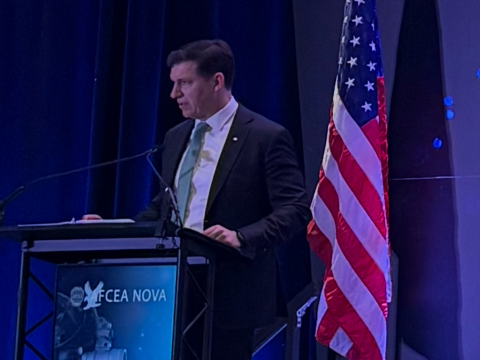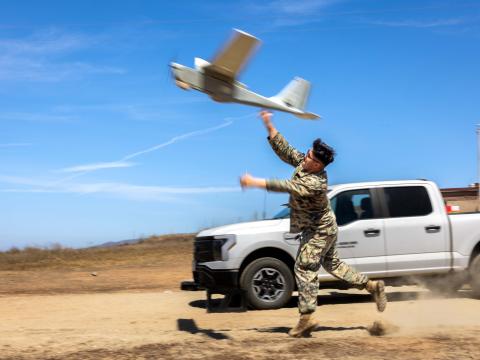DOD, HHS Award $138 Million to ApiJect for Prefilled Syringes in Anticipation of COVID-19 Vaccine
On May 12, the Defense Department and the Health and Human Services Department issued a $138 million contract to ApiJect Systems America to coordinate the production of prefilled syringes in anticipation of a future COVID-19 vaccine, DOD announced.
"Today the Department of Defense and the U.S. Department of Health and Human Services, announce a $138 million contract with ApiJect Systems America for 'Project Jumpstart' and 'RAPID USA,' which together will dramatically expand U.S. production capability for domestically manufactured, medical-grade injection devices starting by October 2020," said Lt. Col. Mike Andrews, USAF, DOD spokesman.
According to DOD, the effort is being led by DOD’s Joint Acquisition Task Force, in coordination with the HHS Office of the Assistant Secretary for Preparedness and Response, in order to create a U.S.-based, high-speed supply chain for prefilled syringes beginning later this year. Suppliers will use the so-called blow-fill-seal (BFS) aseptic plastics manufacturing technology approach for syringes that will later be used for combatting COVID-19 when a safe and proven vaccine becomes available, Col. Andrews explained.
"By immediately upgrading a sufficient number of existing domestic BFS facilities with installations of filling-line and technical improvements, 'Jumpstart' will enable the manufacture of more than 100 million prefilled syringes for distribution across the United States by year-end 2020," he noted.
The contract also has ApiJect accelerating the launch of RAPID USA, a manufacturing effort in new and permanent U.S.-based BFS facilities, with the ultimate goal of producing more than 500 million prefilled syringes in 2021. The effort will begin in Connecticut, South Carolina and Illinois, DOD said, with potential expansion to other states.
"RAPID’s permanent fill-finish production capability will help significantly decrease the United States’ dependence on offshore supply chains and its reliance on older technologies with much longer production lead times," the colonel stated. "These supplies can be used if a successful SARS-COV-2 vaccine is oral or intranasal rather than injectable."



Comments